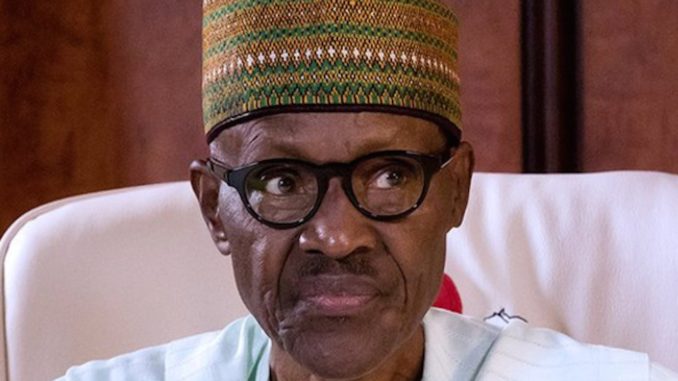
Against popular expectations, President Muhammadu Buhari last week rejected the new amendments to the electoral bill that was resent to him for assent by the National Assembly. It was the fourth time the president has declined assent to the new electoral law that was anticipated to deepen the electoral democracy in Nigeria.
The Senate had on Tuesday 23, October, 2018 passed the fourth version of the electoral bill following adoption of a report by the joint Senate and House of Representatives committee presented by Senator Suleiman Nazif; the Chairman, Senate Committee on Independent National Electoral Commission.
The president had in September, for the third time, rejected the bill that was passed by the national assembly on July 24, 2018; citing contention over “drafting issues”. It would be recalled that the bill had initially failed to receive presidential nod earlier in the year on account of controversies surrounding some of the proposed amendments; notably the reordering of elections which was stoutly opposed by some stakeholders in the political process including the presidency.
There is no doubt expectations over the new Electoral Act have heightened as Nigerians anticipate improvements in the conduct of 2019 general elections. A number of reforms requiring amendments to existing Electoral Act have been canvassed following legal pronouncements on the use of Card Readers introduced in the 2015 general elections as well as other emerging issues on the conduct of elections.
Refusal of President Buhari to assent to previous amendments necessitated another review when the national assembly returned from long vacation in September. At the passage of the fourth version of the electoral bill in October, the Senate President, Dr. Bukola Saraki had noted that the new amendments to the electoral bill were informed by the need for enabling provisions aimed at further improving on the conduct of election. The Senate President who expressed optimism that President Buhari would assent to the bill following the new amendments noted that the anticipated Electoral Act was vital to deepening democracy.
While one would have expected controversies over the new Electoral Law to have been finally resolved in line with observations raised by the president, it is indeed curious that the president is raising fresh issues as reasons for withholding his assent. If rejection of the bill for the fourth time was necessitated by inappropriateness of the timing, it should be disappointing while exigency of time was not considered a factor all along.
It is worrisome that the national assembly and the presidency have failed to reach consensus thereby prompting the current dilemma. It is therefore disturbing that 2019 general elections would most likely be held without enabling provisions that proffer remedies to the indentified grey areas that warranted the amendments.
While 2019 elections could as well be conducted on the basis of extant law and without the controversial amendment, lingering contention between the legislature and the executive over an issue as germane as reform to the electoral process sends serious signals about the crises of democratic governance in Nigeria.
We would like to emphasise that both the national assembly and the presidency must accept responsibility for the needless impasse that is no doubt a huge disservice to the growth of democracy in Nigeria. It is indeed regrettable that elected public officials at such high level of decision-making in Nigeria could be indulging in buck-passing and dillydallying in the face of crucial national assignment that requires statesmanship and dispassionate commitment to consensus.
It is rather unfortunate that the lingering crisis that has become a dominant feature of the 8th National Assembly has taken its toll on the reform to the electoral law. There is no doubt the leadership of the National Assembly failed to reach agreement with the presidency for a record fourth time on amendments to the electoral act for reasons that are not unconnected with the frosty relationship with the Presidency.
While President Buhari could be well in order for withholding assent if he feels unconvinced that the amendments would be in the overall interest of the nationn, the truth however remains that the president has really not demonstrated serious commitment to bequeathing the electoral process with reforms.
It would appear the president is contended with the electoral law as presently the case for reasons not far-fetched. Being an interested party in the 2019 general election, the posturing of Mr. President, has so far, evinced lethargy rather than enthusiasm. Mr. President, from all indications, has not shown dispassionate urge towards imbuing the electoral process with reform.
We therefore caution the National Assembly against overriding Mr. President as has been suggested in some quarters. We are concerned that such move would escalate political tension and constitute threats to 2019 elections that are less than two months away. We maintain that consensus remains the only viable option out of the logjam. We would therefore implore the President and the leadership of the National Assembly to remain open to path of truce. Otherwise, all stakeholders should abide by the provisions in extant Electoral Act for the conduct of 2019 general elections.
END

Be the first to comment